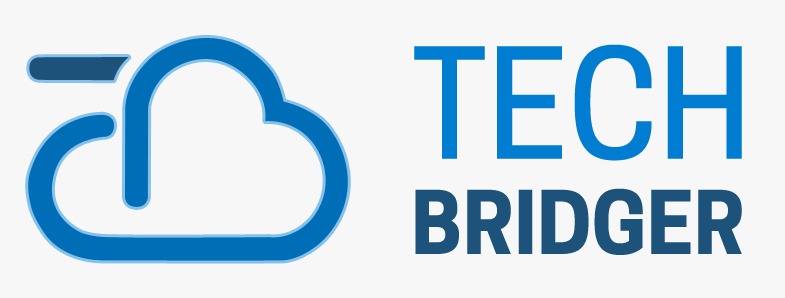Transform Your Supply Chain with Cloud-Native Integration

Boomi World: Showcase of Insights for Building Your Connected Business
12th September 2017
What’s New for Designers, September 2017
12th September 2017In the face of increasing globalization, rising customer expectations and greater choices, supply chain management is no longer just about matching supply to customer demands. It’s about differentiating a business and putting customer needs at the forefront of your operations.
The supply chain is fast evolving as a means to deliver superior omnichannel customer experience. A true omnichannel experience should provide a consistent experience no matter what channel a customer or partner uses for purchasing or interacting with a company.
To address this need, CIOs are at the helm of digitization and transformation initiatives to drive innovation and reduce costs. In these efforts, operational efficiency is critical. Organizations are keen to constantly improve how they source, produce and move goods faster at less cost.
Supply chain managers need transparency to keep customers updated on inventory and shipment status in real time. They need to deliver the right products to the right customers at the right time and respond to ever-changing customer needs. After all, it’s the customer who ultimately decides whether a business succeeds or fails.
That omnichannel experience cannot be delivered without the right technology and integration tools. Organizations need real-time data and visibility into customer demands.
However, most CIOs I talk to are grappling with all kinds of strategic and tactical decisions for improving their supply chains. One of the biggest questions they have: What vendors should we partner with to transform the omnichannel experience for our customers?
The Missing Link in Optimization
From where I sit, agile integration is the missing link in supply chain transformation. Tightly coupled integration is essential for efficiency and visibility across supply chain systems, from ERP and warehouse management to mobile scanners, CRM, ecommerce portals and electronic data interchange (EDI) for automated transactions.
As it is, many organizations base these vital integrations on outdated custom-coded scripts that are costly and time-consuming to develop and maintain. Many other companies are burdened with traditional on-premise integration middleware (ESB) — but these are a poor fit for any company that wants to take advantage of cloud technology while moving quickly and running efficiently.
Choosing the correct integration technology is pivotal to bringing about rapid improvements across your business. The caveat? Ensuring that you choose a true cloud-native platform that delivers all the advantages of this revolutionary technology while avoiding the bait-and-switch of legacy systems dressed up as pure cloud offerings.
It’s also important that your integration platform supports low-code methodologies for agile workflows that drive rapid development that can be done in hours and days — not months.
Customer Success in Supply Chain Integration
That’s what Dell Boomi’s cloud-native integration platform is engineered to do. Integration based on Boomi’s integration platform as a service (iPaaS) is fast emerging as the technology of choice for companies looking to bring revolutionary manageability and visibility into their supply chains.
For example, a leading parts distributor and logistics service provider in Australia for the automotive, commercial and industrial sectors turned to Boomi to consolidate multiple legacy systems onto our unified platform.
After migrating its IT environment from an aging mainframe to a Manhattan SCALE supply chain management system, the company deployed Boomi to connect its critical supply chain management applications, including its ERP and warehouse management systems.
By substituting various in-house integrations with Boomi, the company’s staff now can view and control its supply chain processes and data through a single interface, without compromising data accuracy or their ability to control processes.
The logistics provider can now respond to various customer demands, such as real-time cycle count adjustments. Formerly available on a weekly basis, clients can now view to-the-minute updates to inventory information, resulting in accelerated order-to-delivery times and higher customer satisfaction.
Flexibility for Rapid Innovation
At this company and many others across Australia, Asia and around the globe, Boomi is playing a pivotal role in how companies are:
- Improving efficiency and visibility by connecting ERP, warehouse management and demand planning
- Speeding trading partner on-boarding and automating electronic transactions with Boomi EDI
- Streamlining procurement, replenishment, credit limit and other processes with Boomi workflow automation
- Enhancing ecommerce portals with real-time stock availability data from ERP and warehouse management
- Improving in-person sales calls by enabling sales reps to showcase and order products and inventory on a laptop or tablet, based on real-time data
The past few years have been tumultuous in the supply chain space — and continued change is on the way. Companies are already utilizing sensor-based Internet of Things (IoT) data for creating revolutionary new processes, products and services. 3-D printing and artificial intelligence are on the rise, and many believe that drone delivery and driverless vehicles are just around the corner.
As systems and information multiply, integration becomes all the more important. Based on what I’ve seen in the supply chain space, flexibility and speed of integration deployment is the big differentiator that will separate the winners from the also-rans.



